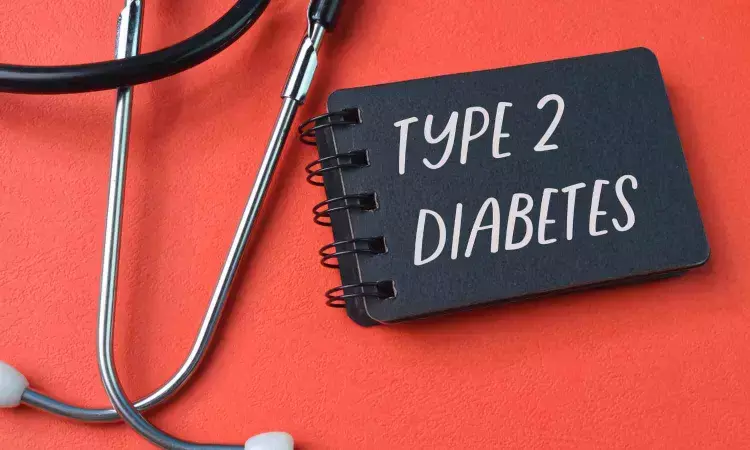- Home
- Medical news & Guidelines
- Anesthesiology
- Cardiology and CTVS
- Critical Care
- Dentistry
- Dermatology
- Diabetes and Endocrinology
- ENT
- Gastroenterology
- Medicine
- Nephrology
- Neurology
- Obstretics-Gynaecology
- Oncology
- Ophthalmology
- Orthopaedics
- Pediatrics-Neonatology
- Psychiatry
- Pulmonology
- Radiology
- Surgery
- Urology
- Laboratory Medicine
- Diet
- Nursing
- Paramedical
- Physiotherapy
- Health news
- Fact Check
- Bone Health Fact Check
- Brain Health Fact Check
- Cancer Related Fact Check
- Child Care Fact Check
- Dental and oral health fact check
- Diabetes and metabolic health fact check
- Diet and Nutrition Fact Check
- Eye and ENT Care Fact Check
- Fitness fact check
- Gut health fact check
- Heart health fact check
- Kidney health fact check
- Medical education fact check
- Men's health fact check
- Respiratory fact check
- Skin and hair care fact check
- Vaccine and Immunization fact check
- Women's health fact check
- AYUSH
- State News
- Andaman and Nicobar Islands
- Andhra Pradesh
- Arunachal Pradesh
- Assam
- Bihar
- Chandigarh
- Chattisgarh
- Dadra and Nagar Haveli
- Daman and Diu
- Delhi
- Goa
- Gujarat
- Haryana
- Himachal Pradesh
- Jammu & Kashmir
- Jharkhand
- Karnataka
- Kerala
- Ladakh
- Lakshadweep
- Madhya Pradesh
- Maharashtra
- Manipur
- Meghalaya
- Mizoram
- Nagaland
- Odisha
- Puducherry
- Punjab
- Rajasthan
- Sikkim
- Tamil Nadu
- Telangana
- Tripura
- Uttar Pradesh
- Uttrakhand
- West Bengal
- Medical Education
- Industry
Eating dark but not milk chocolate linked to reduced risk of type 2 diabetes, suggests study

Eating five servings of dark chocolate a week is associated with a reduction in the risk of type 2 diabetes, according to a long-term US study published by The BMJ today.
Global rates of type 2 diabetes are set to rise to 700 million by 2045. Chocolate contains high levels of flavanols (a natural compound found in fruits and vegetables) which have been shown to promote heart health and reduce the risk of type 2 diabetes. But the link between chocolate consumption and risk of type 2 diabetes remains controversial due to inconsistent results.
In addition, most previous studies have not looked at whether eating dark and milk chocolate – which have different cocoa, milk and sugar content – might have different impacts on the risk of type 2 diabetes.
To explore this further, researchers combined data from three long-term US observational studies of female nurses and male healthcare professionals with no history of diabetes, heart disease or cancer when they were recruited.
Using food frequency questionnaires completed every four years, they analysed associations between type 2 diabetes and total chocolate consumption for 192,208 participants, and chocolate subtype (dark and milk) consumption for 11,654 participants over an average monitoring period of 25 years.
As changes in bodyweight strongly predict risks of type 2 diabetes, the authors also used these food questionnaires to assess participants’ total energy intake.
In the analyses for total chocolate, 18,862 people developed type 2 diabetes. After adjusting for personal, lifestyle, and dietary risk factors, the authors found that people who ate at least five servings a week of any type of chocolate (where one serving is equal to a standard chocolate bar/pack or 1 oz) showed a significant 10% lower rate of type 2 diabetes compared with those who rarely or never ate chocolate.
In analyses by chocolate subtypes, 4,771 people developed type 2 diabetes. After adjusting for the same risk factors, people who ate at least five servings a week of dark chocolate showed a significant 21% lower risk of type 2 diabetes, but no significant associations were found for milk chocolate intake.
The researchers also found a 3% reduced risk of type 2 diabetes for each additional weekly serving of dark chocolate (a dose-response effect). Increased consumption of milk, but not dark, chocolate was associated with long term weight gain.
Although dark chocolate has similar levels of energy and saturated fat to milk chocolate, the authors explain that the high levels of flavanols in dark chocolate might offset the effects of saturated fat and sugar on weight gain and the risk of other cardiometabolic diseases such as diabetes.
The authors acknowledge that the observational nature of this study prevents firm conclusions from being drawn about causality and, although they took account of lifestyle and dietary factors linked to type 2 diabetes, other unknown factors may have affected the results. Most participants were non-Hispanic older white adults, so the findings may not apply to other groups, they add.
However, they point out that results remained largely unchanged after adjusting for additional factors, suggesting that they are robust.
As such, they conclude: “Increased consumption of dark, but not milk, chocolate was associated with lower risk of type 2 diabetes. Increased consumption of milk, but not dark, chocolate was associated with long term weight gain. Further randomized controlled trials are needed to replicate these findings and further explore the mechanisms.”
Reference:
Liu B, Zong G, Zhu L, Hu Y, Manson J E, Wang M et al. Chocolate intake and risk of type 2 diabetes: prospective cohort studies BMJ 2024; 387 :e078386 doi:10.1136/bmj-2023-078386.
Dr Kamal Kant Kohli-MBBS, DTCD- a chest specialist with more than 30 years of practice and a flair for writing clinical articles, Dr Kamal Kant Kohli joined Medical Dialogues as a Chief Editor of Medical News. Besides writing articles, as an editor, he proofreads and verifies all the medical content published on Medical Dialogues including those coming from journals, studies,medical conferences,guidelines etc. Email: drkohli@medicaldialogues.in. Contact no. 011-43720751


